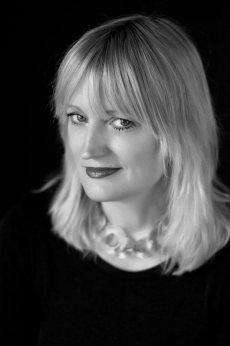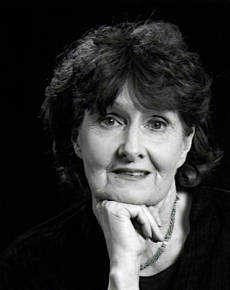
Email: EllaTournes@bexleygs.co.uk
Total Article : 45
About Me:Sixth form student currently studying English Literature, Drama and Theatre Studies, Classical Civilisation and History.

Both Eavan Boland in ‘Inheritance’ and Ros Barber in ‘Material’, explore the persona’s relationship, both with their own mothers, and with their children. However, ‘Material’ seems to explore the softer, personal, more intimate nature of a mother/child relationship, whereas ‘Inheritance’ seems to portray a more general relationship that could be applied to any mother and child, as motherhood is an experience that transcends generations.
Although both poems seem to imply that women’s relationships with their own mothers affect the relationships they have with their children, the way they do this differs from the very start. ‘Material’ opens with a reference to the persona’s mother – ‘My mother was the hanky queen/when hanky meant a thing of cloth’. This starts the poem in the past tense; Barber begins with a description of her own mother, then applies the concept of motherhood to herself in the later stanzas of the poem (‘There’s never a hanky up my sleeve, I raised neglected-looking kids). However, Boland starts her poem with references to the future – ‘I have been wondering/ what I have to leave behind, to give my daughters’. This starts the poem with thoughts of the future, which are then supported in the final stanza of the poem by reference to the poet’s own mother, and the past (‘I must’ve learned that somewhere’). The juxtaposing focuses of past and present/future in ‘Material’ and ‘Inheritance’ make the poems seem very different tonally. The nostalgic tone in ‘Material’ implies that the relationship between mother and child is an individual one; it is intimate, but changes as time goes on (this interpretation can be supported by the lines ‘But it isn’t mine, I’ll let it go,/my mother too, eventually’). However, the subconscious application of previous ‘life lessons’ (a connotation of the word ‘taught’) makes Inheritance seem as though the concept of motherhood, and all that it entails is passed down from generation to generation.

Boland and Barber both use semantic fields to present mother and child relationships. In ‘Inheritance’ Boland employs a semantic field of nature, utilising words such as; ‘rain’, ‘haze’ ‘ground’ ‘light’ ‘island’ ‘waters’ ‘oat’ ‘wheat’. This implies that motherhood is a natural experience, which perhaps isn’t affected by the ways of modern life, or new and changing generations. There are elements of ‘Material’ that support this idea as well – for example, the poem’s rhyme scheme has every other line rhyme. This creates a regularity that is perhaps suggestive of the regularity of mothers raising children throughout time – the changing of generations, again, doesn’t affect it. However, the semantic fields that Barber uses throughout the poem contradict this idea, and seem to enforce the idea of motherhood being more of an individual experience. There is an obvious semantic field of material – (‘hanky’ ‘cloth’ ‘paper’ ‘cardi’ ‘lace’ ‘embroidered’ ‘headscarves’ ‘girdles’ ‘knitting wool’ ‘tissues’). Material, and the way that Barber refers to imagery related to it, seems like a fairly non-clichéd idea when it comes to describing motherhood; this shows how the special element of material was specific to the persona’s childhood, and her own mother. The persona later highlights the ‘awkwardness in (her that) forbids/ (her) to keep tissues in her bag’, showing how the material, which made up such a huge part of the language she used when referring to her childhood, doesn’t even play a small part in her life in the present. Barber also uses diction choice to present the intimacy of the town she lived in, with references to the ‘friendly butcher who’d slip and extra sausage in.’ Barber also uses this stanza to apply the intimacy specifically to the town she lived in, referring to ‘George, with his dodgy foot, delivering veg from a Comma van.’ The memory of a specific detail like the greengrocer’s name shows how the poem is trying to present an individual woman’s experience, and almost alienate the reader from that. This, again, makes ‘Material’ seem like a poem that presents mother and child relationships as individual and unique.
Both poems end with what the reader is meant to ‘take’ from the poem; they contain its overarching ‘message’. In ‘Inheritance’, the transcending nature of lessons taught by mothers to their children is implied – ‘I must’ve learnt that somewhere’. In ‘Material’ however, Barber uses the tissues the persona’s mother gives her as a metaphor for the lessons she was taught – she is given her ‘material’ by her mother, but ultimately it is ‘to do with, daughter, what you will’. This implies that although mothers can teach their daughter life lessons, ultimately, the mistakes they make will be different because they are different people, in different generations.
Upon first impression, ‘Material’ and ‘Inheritance’ seemed like fairly similar poems to me. Both focus on the relationship of mothers and children, and how they are affected generation by generation. However, the poems can be interpreted as conveying contrasting ideas on exactly how the relationships are affected generation by generation.

0 Comment:
Be the first one to comment on this article.